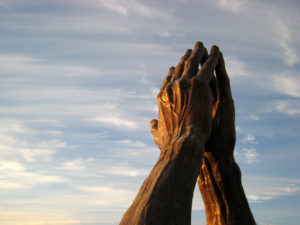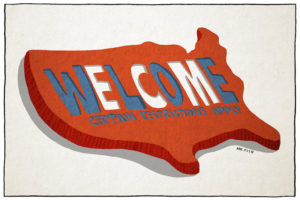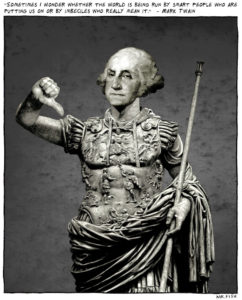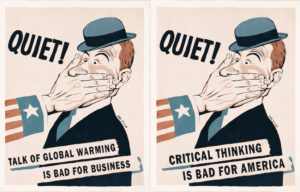Remembering Arthur M. Schlesinger Jr.
The historian, who died this week, disdained utopianism but lived in hope with a lifelong belief in the power and persistence of liberalism in American politics.WASHINGTON — “No intellectual phenomenon has been more surprising in recent years than the revival in the United States of conservatism as a respectable social philosophy,” the distinguished commentator wrote.
“For decades, liberalism seemed to have everything its way,” but “fashionable intellectual circles now dismiss liberalism as naive, ritualistic, sentimental, shallow. With a whoop and a roar, a number of conservative prophets have materialized out of the wilderness, exhuming conservatism, revisiting it, revitalizing it, preaching it. …”
Thus wrote that lion of American liberalism, Arthur M. Schlesinger Jr., in 1955, long before the Reagan and Gingrich revolutions. Here was a historian whose understanding of the past afforded him remarkable perspective on the future.
Schlesinger’s death on Wednesday at 89 raises the question of whether the liberalism to which he was devoted — “I remain to this day a New Dealer, unreconstructed and unrepentant,” he wrote in a memoir published in 2000 — will be buried with him.
The short answer that arises from the body of Schlesinger’s brilliant work is that reports of liberalism’s death are always premature. Liberalism will rise again and again because renewing the public sphere and reviving concern for the less privileged and less powerful are inevitably what free citizens demand at the end of a conservative era. Schlesinger believed that American history runs in cycles.
Consider these words from Schlesinger in 1960: “At periodic moments in our history, our country has paused on the threshold of a new epoch in our national life, unable for a moment to open the door, but aware that it must advance if it is to preserve its national vitality and identity. One feels that we are approaching such a moment now — that the mood which has dominated the nation for a decade is beginning to seem thin and irrelevant; that it no longer interprets our desires and needs as a people; that new forces, new energies, new values are straining for expression and for release.”
Schlesinger’s essay resonates with the spirit of this moment. He also wrote then of a “widening restlessness,” the rise of both “satire and idealism” (Jon Stewart and Stephen Colbert would understand this), a “mounting dissatisfaction with the official priorities” and “a deepening concern with our character and objectives as a nation.”
Like John Kenneth Galbraith, his friend and fellow worker in liberalism’s vineyards, Schlesinger worried about “the classical condition of private opulence and public squalor.” He said of the 1950s: “We have chosen in this decade to invest not in people but in things. We have chosen to allocate our resources to undertakings which bring short-run profits to individuals rather than to those which bring long-run profits to the nation.” The new public priorities, Schlesinger said, should include schools, medical care and “energy development.” Meet the old agenda; same as the new agenda.
Schlesinger is honored by foreign-policy hawks for his loathing of communism as antithetical to any form of liberalism. A few years after completing “The Age of Jackson,” his magisterial work on Andrew Jackson, Schlesinger wrote a polemical volume in 1949 called “The Vital Center” that denounced the “sentimentalism” and even “private neurosis” of the pro-Soviet left. Standing up to the Soviet Union, he argued, was a liberal obligation.
Yet, if Schlesinger understood the benefits of American power, he also knew its limits. He opposed the Iraq war and the “ghastly mess” it created.
In a 2005 essay in The New York Times Book Review, Schlesinger cited Reinhold Niebuhr, the great theologian who was his friend, on what it took for Americans to be effective in the world: “a sense of modesty about the virtue, wisdom and power available to us” and “a sense of contrition about the common human frailties and foibles which lie at the foundation of both the enemy’s demonry and our vanities.” It’s hard to imagine wiser advice on the proper use of power.
Schlesinger was a practical realist who disdained utopianism but lived in hope. Indeed, his 1963 essay collection was called “The Politics of Hope,” a precursor, perhaps, to Barack Obama’s “The Audacity of Hope.” Does it require more audacity to be hopeful in 2007 than in 1963? You have to hope not.
At its best, Schlesinger said, democratic politics is about “the search for remedy.” A belief in remedy — in problem-solving — is the antidote to social indifference and to despair about our capacity to act in common through government. This is the liberalism Schlesinger spent his life advancing. Thanks in significant part to his work, it will long survive him.
Your support matters…Independent journalism is under threat and overshadowed by heavily funded mainstream media.
You can help level the playing field. Become a member.
Your tax-deductible contribution keeps us digging beneath the headlines to give you thought-provoking, investigative reporting and analysis that unearths what's really happening- without compromise.
Give today to support our courageous, independent journalists.





You need to be a supporter to comment.
There are currently no responses to this article.
Be the first to respond.